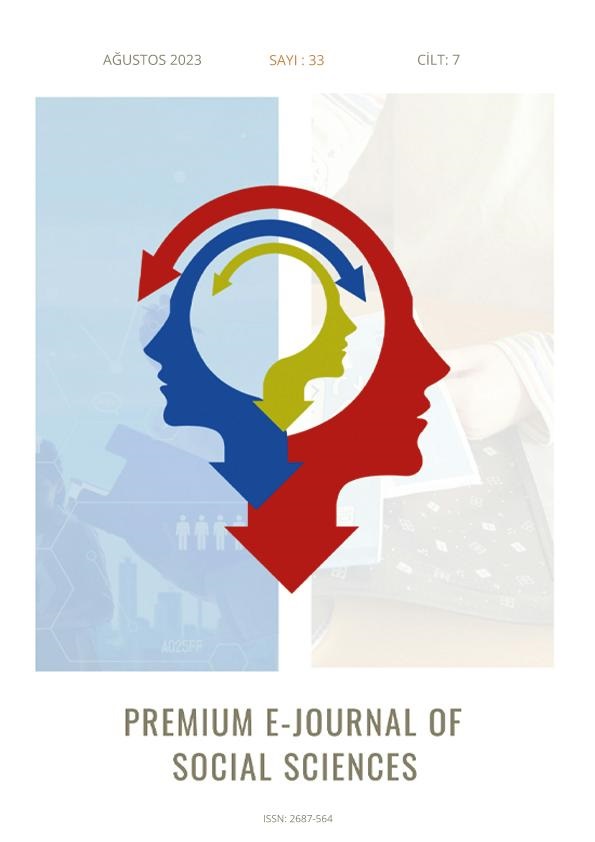An Analysis of the Concept of Sovereignty between Islamic Law and Western Law
DOI:
https://doi.org/10.5281/zenodo.8278583Keywords:
Sovereignty, Code, Law, Fiqh, ShariaAbstract
The concept of sovereignty is defined as the sole and supreme political power that a state provides over its people living on its territory. The element of sovereignty is one of the building blocks of the state in terms of its importance. With the transition of people to social life, the concept of state and sovereignty has gained greater importance. There is a need for a state institution to ensure the safety of life and property of individuals. Certain principles are needed for the emergence of the state. At the forefront of these principles is the concept of sovereignty. Another issue that should be emphasized in the concept of sovereignty is the phenomenon of the source of sovereignty. The concept of sovereignty is based on different principles in different countries and legal systems. Since the concept of sovereignty in Islamic law is based on a superhuman power, it is defined as divine. Since Islamic law has a universal character, the idea of sovereignty includes a wider scope. In terms of Islamic states, the understanding of sovereignty should be provided according to the principles in the Qur'an. More than one view has been put forward regarding the concept of state in Western law. Some thinkers are described as a community of people who aim for common benefit. Others describe it as the incarnation of the philosopher-king with his wisdom. In relation to the concept of sovereignty, it is defined as the class or person who has the power to rule by the people, holding the authority to order and residence. There are certain differences between the different understandings of sovereignty in these different legal systems. These differences will be evaluated.
Downloads
References
Akbulut, A. (2017). Sahabe Dönemi İktidar Kavgası: Alevi Sünni Ayrışmasının Arka Planı, (5. Baskı). Otto Yayınları.
Akipek, İ. (1953). John Locke’un Siyasi Fikirleri. Ankara Üniversitesi Hukuk Fakültesi, 10 (1), 258-259.
Arsel, İ. (1968). Anayasa Hukuku (Demokrasi). Sıralar Matbaası.
Aydınlı, H.İ., Ayhan V. (2004). Egemenlik Kavramının Tarihsel Gelişimi Perspektifinden İktidarın Sınırlandırılması Tartışması, Cumhuriyet Üniversitesi İktisadi ve idari Bilimler, 5(1), 67-84.
Bolay, S. H. (1996). Felsefi Doktrinler ve Terimler Sözlüğü. Akçağ Yayınları.
Bulut, N. (2002). Orta Çağ’dan Yeni Çağ’a Geçiş Süreci Bağlamında Ekonomik Zihniyet Değişiminin Siyasal Düşünceye Etkisi. Atatürk Üniversitesi Erzincan Hukuk Fakültesi, 6(1), 17-32.
Çetin, H. (2002). Egemenlik ve Hukuk İlişkisi Üzerine. Cumhuriyet Üniversitesi İktisadi ve İdari Bilimler Fakültesi, 3(2), 3-4.
Çetin, H. (2007). Çağdaş Siyasi Akımlar. Orion Kitabevi, 10(1), 129-130.
Ebenstein, W. (2001). Siyasi Felsefenin Büyük Düşünürleri (Çev: İsmet Özel). Şule Yayınları.
Erdoğan, M. (1990). İslam Hukukunda Ahkamın Değişmesi. Marmara Üniversitesi İlahiyat Fakültesi Yayınları.
Eskicioğlu, O. (1996). İslâm ve Uluslararası Adâlet. T.D.V.Y.
Göze, A. (2007). Siyasal Düşünceler ve Yönetimler. Beta Yayınevi.
Hacımüftüoğlu, H. (2017), Kral Tanrı: Allah’ın Krallığı (2. Baskı). İletişim Yayınları.
Hakyemez, Y.Ş. (2004). Mutlak Monarşilerden Günümüze Egemenlik Kavramı. Seçkin Yayıncılık.
Hobbes, T. (2001). Leviathan (Çev: Semih Lim). Yapı Kredi Yayınları.
İbn Hişâm, A. (1992). es-Sîretü’n-Nebeviyye (6. Baskı). Dâru’l-Fikr.
Kapani, M. (1992). Politika Bilimine Giriş. Bilgi Yayınevi.
Karatepe, Ş. (1996). İnsan Haklarının İlâhî Temelleri. T.D.V.Y.
Machiavelli. (1992). Hükümdar (Çev. Selahattin Bağdatlı). Sosyal Yayınlar.
Mevdudi, E. A. (2015). Hilafet ve Saltanat (Çev. Ali Genceli). Hilal Yayınları
Önal, G. (1995). İşletme Yönetimi ve Organizasyonu. Marmara Üniversitesi Yayınları.
Saygılı, A. (2010). Modern Devletin Çıplak Sureti. Ankara Üniversitesi Hukuk Fakültesi, 59(1), 61-97.
Tahmâz, A. M. (1991). Mizatüş’t-Şeriâh’l-İslamiyye alel Kavanini’l-Vaziyye. Dımeşk.
Tunçay, M. (1969). Batı’da Siyasal Düşünceler Tarihi-1-2-3, AÜSBF Yayınları.
Türköne, M. (2005). Siyaset. Ankara: Lotus Yayınevi.
Yayla, A. (1992). Liberalizm. Turhan Kitabevi.
Zabunoğlu, Y.K. (1957). Thomas Hobbes, Hayatı, Eserleri ve Hukuki Fikirleri. Ankara Üniversitesi Hukuk Fakültesi, 14(1), 230.
Zühayli, Vehbe. (1987). Cühüdü Taknini’l-fıkhi’l İslami. Beyrut.
Downloads
Published
How to Cite
Issue
Section
License
Copyright (c) 2023 Premium e-Journal of Social Science (PEJOSS)

This work is licensed under a Creative Commons Attribution 4.0 International License.


